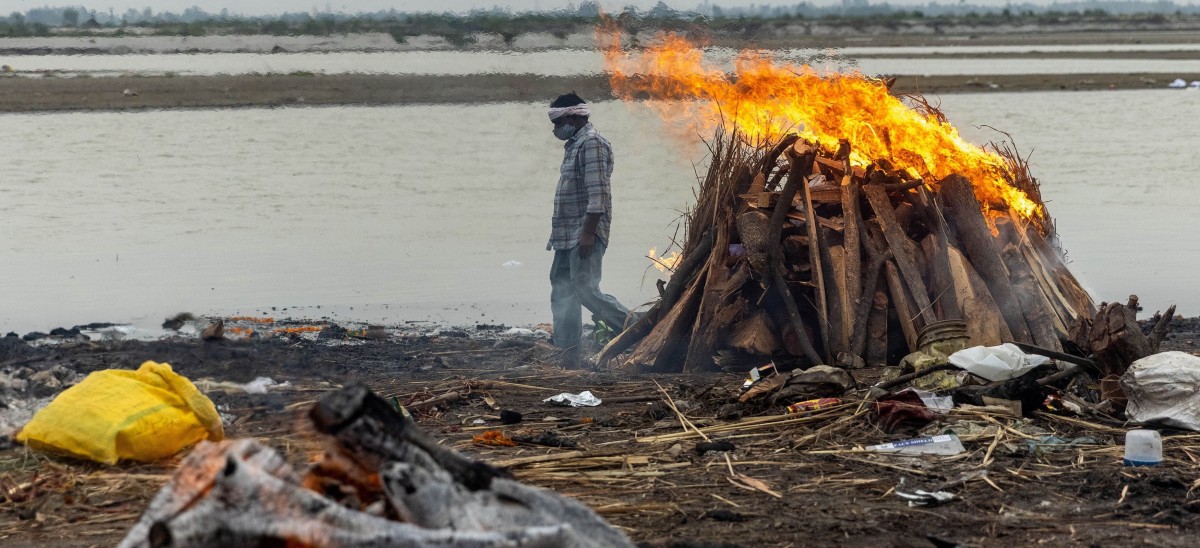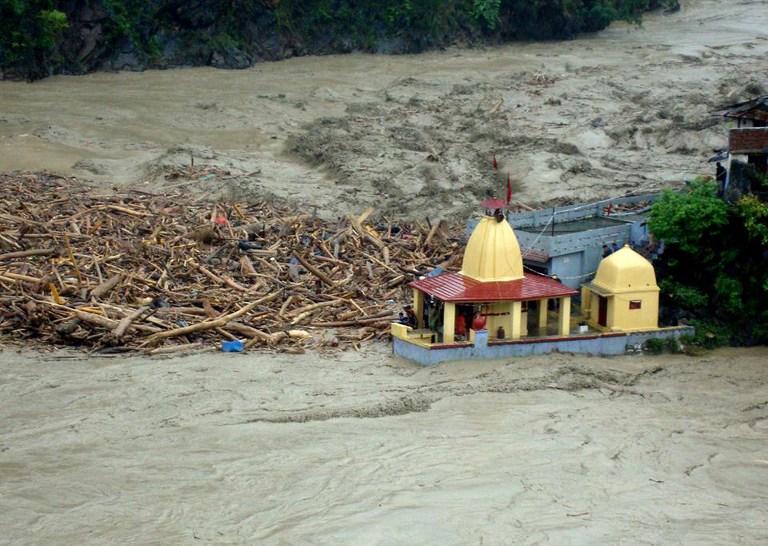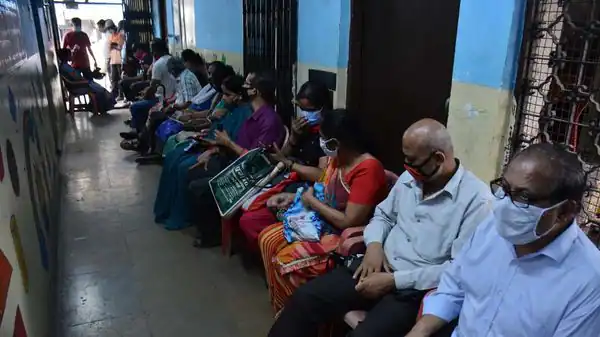The health ministry and the ICMR have devised guidelines for official documentation of deaths due to COVID-19.
A man walks past burning pyres with people who died from the coronavirus disease (COVID-19), on the banks of the river Ganges at Garhmukteshwar in the northern state of Uttar Pradesh, India, May 6, 2021. Photo: Reuters/Danish Siddiqui
New Delhi: Over a week after the Supreme Court rapped the Union government on the lack of clarity on what can be considered a COVID-19-related death, the latter has filed an affidavit with guidelines.
The Union government said that the health ministry and the Indian Council of Medical Research (ICMR) have devised guidelines for official documentation of deaths due to COVID-19.
The Union government also submitted that the Office of the Registrar General of India issued a circular on September 3 to provide a Medical Certificate of Cause of Death to the next of kin of the deceased.
“It is submitted that the guidelines and circular have been issued in respectful compliance of the judgment dated June 30, 2021, in the Reepak Kansal v. Union of India and others, W.P.(C) No. 554 of 2021 and Gaurav Kumar Bansal v. Union of India and others, W.P.(C) No. 539 of 2021,” the affidavit said.
In its June 30 verdict, the top court had ordered steps to simplify guidelines for issuance and correction of death certificates and official documents, stating the exact cause of death, that is, ‘death due to COVID-19’ for enabling dependents to get benefits of welfare schemes.
The top court’s verdict had come on two separate pleas filed by lawyers Reepak Kansal and Gaurav Kumar Bansal seeking directions to the Centre and the states to provide Rs 4 lakh compensation to the families of coronavirus victims as provisioned under the Act. The Centre had earlier submitted by that state governments cannot afford to pay Rs 4 lakh and had instead argued in favour of a “broader approach”.
Four intervenors, who had lost their family members due to COVID-19 have also moved the top court through advocate Sumeer Sodhi contending that there cannot be any discrimination in the amounts being paid by different states to family members of those, who had succumbed to the infection.
Guidelines
According to the guidelines, those COVID-19 cases would be considered which have been diagnosed through RT-PCR test, molecular test, rapid-antigen test or clinically determined through investigations at a hospital or in-patient facility by a treating physician, while admitted at the hospital or in-patient facility.
“Deaths occurring due to poisoning, suicide, homicide and deaths due to accident, among others, will not be considered as COVID-19 deaths even if COVID- 19 is an accompanying condition,” the guidelines stated.
“COVID-19 cases which are not resolved and have died either in hospital settings or at home, and where a Medical Certificate of Cause of Death (MCCD) in Form 4 and 4 A has been issued to the registering authority as required under Section 10 of the Registration of Birth and Death (RBD) Act, 1969, will be treated as a COVID-19 death, according to the guidelines.
The Registrar General of India will issue necessary guidelines to chief registrars of all states and Union Territories in this regard.
According to an ICMR study, 95% of deaths take place within 25 days of a person testing COVID-19 positive, it was mentioned in the guidelines.
“To make the scope broader and more inclusive, deaths occurring within 30 days from the date of testing or from the date of being clinically determined as a COVID-19 case, will be treated as ‘deaths due to COVID-19, even if the death takes place outside the hospital/ in-patient facility,” the guidelines stated.
However, a COVID-19 patient, while admitted at a hospital or in-patient facility, and who continued as the same admission beyond 30 days, and died subsequently, shall be treated as a COVID-19 death, according to the guidelines.
The guidelines state that in cases where the MCCD is not available or the next of kin of the deceased is not satisfied with the cause of death given in the MCCD and which are not covered by the aforesaid scenarios, states and Union Territories shall notify a committee at the district level.
The committee would consist of an additional district collector, the chief medical officer of health (CMOH), an additional CMOH/ principal or head of department of medicine of a medical college (if one exists in the district) and a subject expert, for issuing of the “Official Document for COVID-19 Death”, the guidelines said.
The guidelines also enumerate the procedure to be followed by the committee.
The next of kin of the deceased shall submit a petition to the district collector for issuing of the document, it said.
“The Official Document for COVID-19 Death will be issued in the format annexed to these guidelines by the aforesaid district-level committee after due examination and verification of all facts. The Official Document for COVID-19 death shall also be communicated to chief registrars of states/UTs and Registrar of Birth and Death, who issued the death certificates,” one of the guidelines said.
The committee will also examine the grievances of the next of kin of the deceased, and propose necessary remedial measures, including issuance of amended “Official Document for COVID-19 Death” after verifying facts in accordance with these guidelines.
The applications for issuing the document and for redressal of grievances shall be disposed off within 30 days of submission of the application or grievance.
(With PTI inputs)



